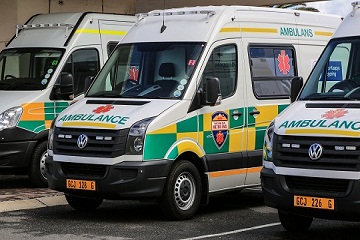Winter is here
 Preparing for unexpected emergencies can save lives. This is why the Western Cape Disaster Management Centre (WCDMC) has put plans into place to keep you safe this winter.
Preparing for unexpected emergencies can save lives. This is why the Western Cape Disaster Management Centre (WCDMC) has put plans into place to keep you safe this winter.
Minister of Local Government, Environmental Affairs and Development Planning, Anton Bredell says the main risks this winter season are:
- heavy rains and flooding,
- mudslides in fire-affected areas,
- cold weather,
- informal settlement fires, and
- electricity constraints.
The minister said all 30 municipalities are ready for winter. “The City of Cape Town and our other municipalities have up-to-date standard operating procedures and contingency plans in place to address incidents in their areas.”
These plans include response, relief and temporary shelter for affected communities.
What can you expect?
Several steps have been put in place to keep you safe this winter. These include:
- An agreement with the South African Defence Force to use helicopters for rescue operations.
- Constant communication between the WCDMC and the South African Weather Service regarding early weather forecasts, as well as with the Department of Water Affairs for dam levels and river flows.
- An educational fire and flood awareness campaign aimed at increasing the level of preparedness and resilience at schools in various communities across the province.
Minister Bredell said the WCDMC has also been planning for the possibility of severe power shortages, the same way the province plans for other severe incidents like earthquakes, floods and storm surges, as required by law.
Who can I call in cases of emergency?
The easiest number to remember is 112. This is a toll free number and can be dialled from any cellphone.
You could also call these numbers:
Cape Winelands: Langeberg Municipality 0860 88 1111
Eden District: 044 805 5071
Central Karoo: 023 414 2603
West Coast: 022 433 8700
Overberg: 028 271 8111
City of Cape Town:107 landline or 021 480 7700
How can I prepare for a flood?
- Identify the risk in your local area.
- Prepare a home emergency plan, and identify risks around your home.
- Remove leaves (from downpipes or gutters) or any other items that can increase the risk of flooding in your area.
- Have an evacuation plan. Everyone in your family has to know where to go to find shelter.
- Prepare an emergency toolkit. This should include a first aid kit, torch and portable radio with batteries, candles and waterproof matches, drinking water, a multi-tool, whistle and emergency contact numbers.
What should I do during a flood?
- Monitor current flood warnings.
- Listen to the radio for emergency warnings, evacuation advice and weather updates.
- Avoid entering floodwater unless it is necessary, and never underestimate the strength of floodwater, even if you are inside a vehicle.
- Follow all instructions from emergency authorities.
- Turn off all electricity and water and take your cellphone with you.

- Assist elderly and disabled neighbours.
What should I do after the flood?
- Before entering your house, wait until the water has dropped below floor level.
- Check with electricity and water authorities to know whether it is safe for you to use these resources.
- Be aware of contamination if water sources have been flooded; this could be unsafe to drink.
Contact these additional emergency numbers if you need assistance:
- 112 (from a cellphone) and 10177 from a landline.
- Report floods, blocked drains and service disruption to 0860 103 089.
- City of Cape Town Disaster Risk Management Centre: 080 911 4357.


